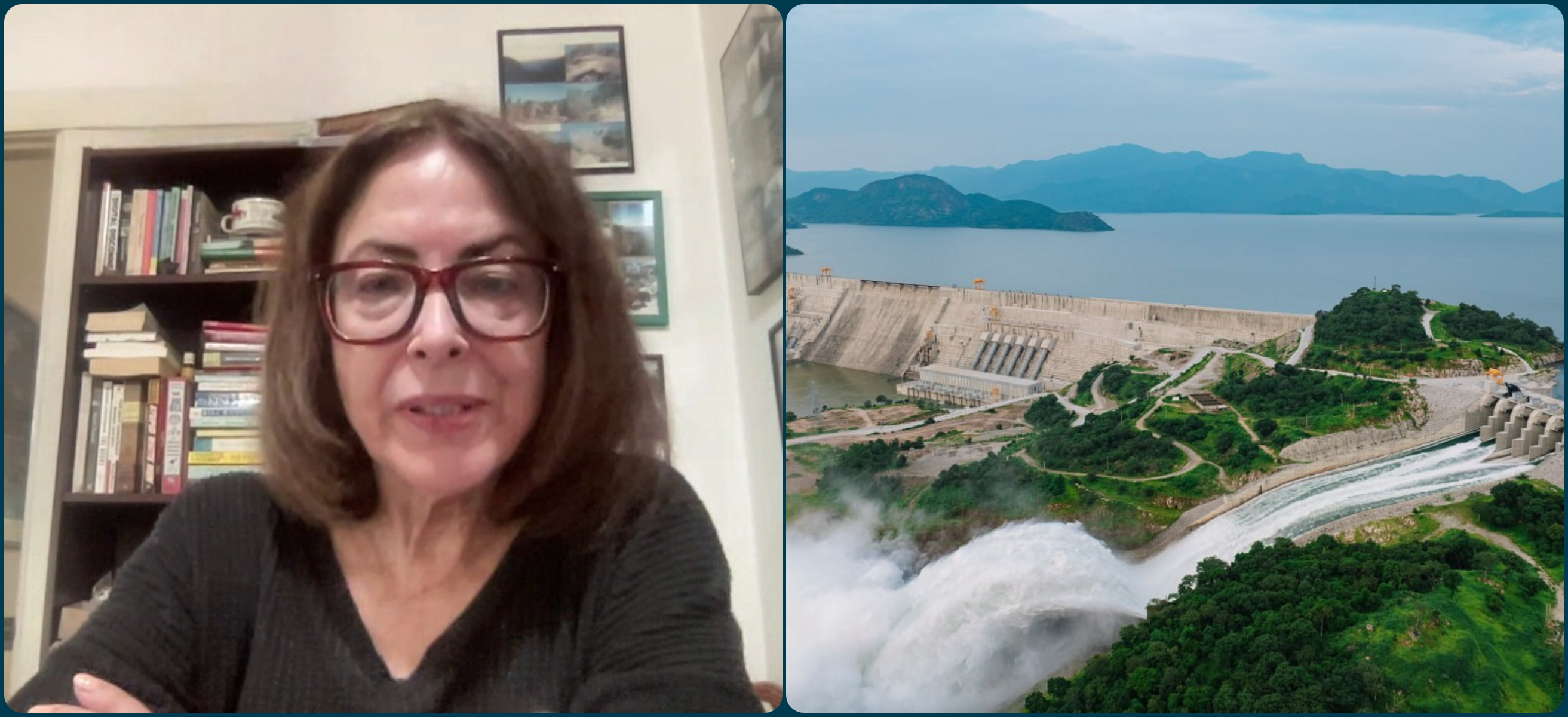American Journalist Hails GERD as Symbol of African Self-Reliance, Pathway to Regional Unity - ENA English
American Journalist Hails GERD as Symbol of African Self-Reliance, Pathway to Regional Unity

Addis Ababa, September 28, 2025 (ENA) -- An American journalist, Ann Garrison, remarked that the Grand Ethiopian Renaissance Dam (GERD) is more than a hydropower project; it is a symbol of hope for Ethiopia and Africa, promising to power industrialization, reduce poverty, and strengthen regional cooperation.
Ann Garrison, a Black Agenda Report Contributing Editor and contributor to The Grayzone, has been following the GERD closely for years. In an interview with the Ethiopian News Agency, the American Journalist sees the GERD as an aspiration of African self-reliance and resilience.
“It’s not just a dam; it’s a pathway to industrialization, sustainable development, and regional unity. It’s one of the most exciting stories in Africa today,” she stated.
Garrison described the dam as “hugely exciting,” stressing that access to electricity is essential for breaking Africa’s cycle of economic dependency and underdevelopment.
“Electricity is one of the most important things needed to escape the economic trap,” she explained. “The GERD can deliver power across the Horn of Africa, generate revenue for the Ethiopian government, and improve daily life by lighting homes, helping children study, powering schools, factories, and industries, and most importantly, lifting people out of subsistence farming.”
One of the dam’s most remarkable features, Garrison highlighted, is its financing. Unlike many large African infrastructure projects that depend on foreign donors or international lenders, the GERD was fully funded by Ethiopians themselves.
Despite various challenges, ordinary Ethiopians contributed to its construction, whether by buying bonds or through other means. “I don’t know of another major project of this scale financed entirely by the people. That’s why the GERD transcends politics—it is a national achievement,” she said.
Turning to Egypt’s opposition, Garrison dismissed reliance on outdated colonial-era treaties that gave Egypt exclusive rights to the Nile. “More than 85 percent of the Nile’s waters originate in Ethiopia. Ethiopia has every right to use them,” she argued, adding that the dam can also help regulate floods in Sudan and Egypt so that the GERD should be seen as a tool for cooperation.”
On the issue of climate change, Garrison emphasized that Africa should not be pressured by industrialized nations, responsible for the bulk of global carbon emissions, on what kind of energy to use.
“Africa should pursue energy sources that work for Africa. Since the continent is especially vulnerable to climate change, it makes sense to develop renewable energy that won’t make the crisis worse like the GERD,” the American Journalist said.
For her, the GERD embodies exactly that: a massive renewable, eco-friendly, and sustainable energy source that is vital for Africa’s future.
“The idea of a unified Horn of Africa, industrializing and working together, is precisely what the region needs,” she stressed.
Calling herself “the biggest fangirl of the GERD in the United States,” Garrison shared how awareness of the project is growing even beyond Africa.
“At a party recently, people were asking me about GERD. Many already knew about it. It’s rare these days to hear good news, but this great news about the completion and functioning of the GERD is truly transformative for Africa,” she emphasized.
As the largest hydropower plant on the continent, the GERD has the capacity to meet domestic demand and export surplus electricity to neighboring countries.
For Garrison, this makes cooperation among the Nile Basin nations not optional, but essential.